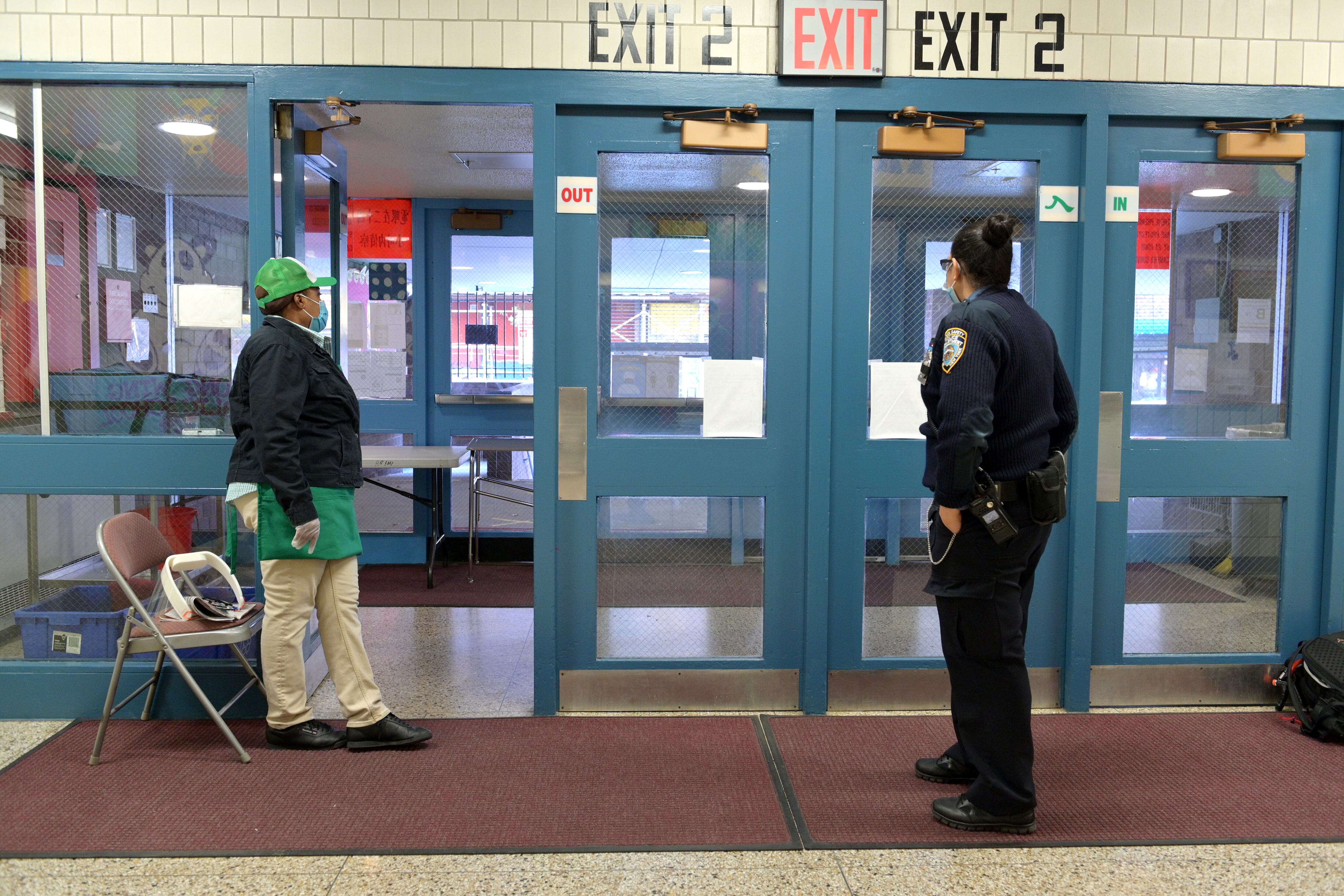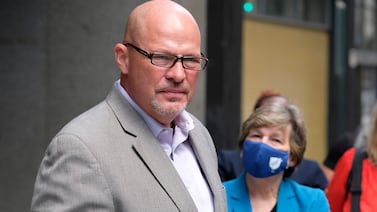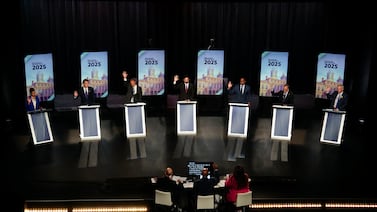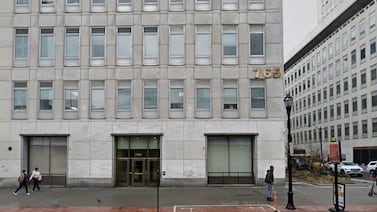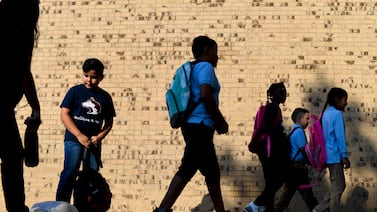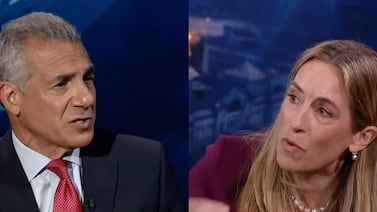Just weeks before Newark is set to reopen classrooms, the city teachers union is urging the district to pump the brakes.
Students are scheduled to return to in-person learning part-time beginning on Jan. 25 — more than 10 months after the state’s largest school district first shuttered school buildings. But with the coronavirus pandemic still raging and officials reporting scores of new daily cases in Newark, the union says now is not the time to welcome students back to schools.
“We don’t think it’s safe to reopen,” Newark Teachers Union President John Abeigon told Chalkbeat. “Right now, we’re doing everything in our power to try to stop it.”
Last month, Abeigon called on the district to require students to test negative for the virus before returning to school, as teachers are required to do. Abeigon went further this week, saying in an interview that he does not believe schools should reopen at all given the city’s high COVID-19 transmission rate. Opening schools in hard-hit areas can further spread the virus, according to a new study.
Newark has averaged 141 new cases each day since Dec. 30, Mayor Ras Baraka said Monday. The city’s three-day COVID-19 test positivity rate was over 15% as of Dec. 24, Baraka added — about double the rate in late October, when the district last postponed in-person learning. Newark’s steep case count is expected to keep climbing this month as people who gathered or traveled over the holidays get tested.
A 14-day positivity rate above 10% poses the “highest risk” of in-school transmission, according to the Centers for Disease Control and Prevention.
New York City temporarily closed schools after its test positivity rate reached 3%. And while a majority of New Jersey districts continue to offer some in-person classes, a growing number are switching to all-remote learning.
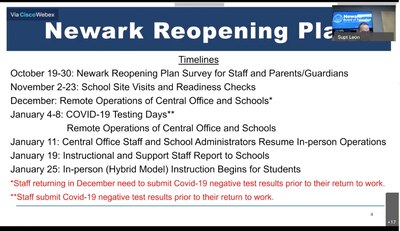
Newark has kept schools shuttered since March after twice nixing plans to reopen classrooms this fall due to the city’s high infection rate. The tentative plan now is for teachers to begin reporting to schools on Jan. 19 and students who opt in to arrive the following week. In preparation, the district told teachers they must get tested for the virus this week.
Families can still opt for a fully remote schedule, and teachers can request waivers to continue working remotely. Abeigon said such requests have recently “shot through the roof.”
Superintendent Roger León told the school board last month that “the expectation as of right now” is that students will start learning in person at least two days a week beginning in late January. Yet he immediately cast doubt on that timeline, noting that the district delayed reopening classrooms last fall, when the city’s transmission rate was lower than it is now.
“So we’re extremely concerned about what the realities are,” he said. He was even blunter in November, telling the board: “I’m really concerned that January may not allow us to actually do in-person instruction.”
Some teachers anticipate that León will once again postpone in-person learning, but others are dreading the possibility that classrooms will reopen this month.
Jacqueline Becerra is a substitute teacher in the district who has worked remotely during the pandemic. As a single parent without district health insurance, she is terrified imagining what would happen to her two sons if she returned to school and got sick.
“It’s just not safe,” she said. “If they force me to, I’ll quit.”
The district’s lack of transparency has added to many people’s frustration. León has never explained what data is guiding his decision-making, and in the fall he insisted that schools were ready to reopen before abruptly canceling those plans. A district spokeswoman did not respond to questions for this story.
District officials should ask for families’ feedback on virtual learning and thoughts about reopening, said Anna Da Silva, whose daughter attends preschool in Newark.
“They get paid from our taxes,” she said, “so I would like to have a say.”
While her four-year-old daughter has adjusted to online learning, Da Silva worries about the lack of social interaction and is eager for her to return to the classroom.
“If they reopen, I’ll send her,” she said. “If they don’t, I’ll be mad.”
While students learn remotely, the district has been getting schools ready to reopen. It has stockpiled hundreds of thousands of face masks and other protective gear, and spent $7 million updating school ventilation systems, officials said. The air filtration upgrades impressed the school nurses union.
“We will be OK in our school buildings if everything is followed through,” union president Elaine Elliott said at the December board meeting. “As nurses, we feel great about this.”
As Newark students wait to learn whether they will return to schools this month, many say they are fatigued by online learning and desperate to reunite with their friends. And recent national data suggests that student learning has slowed since classrooms closed last spring.
Marques-Aquil Lewis, a Newark parent and former school board member, said he worries about the lasting toll on students who have spent so many months away from classrooms.
“As a parent in the district,” he said at the board meeting, “I am scared about remote learning and how this pandemic is going to affect our children in the future.”

